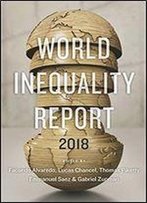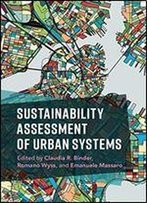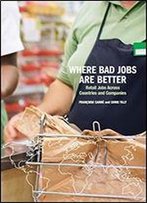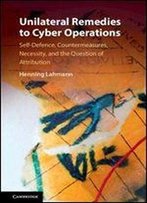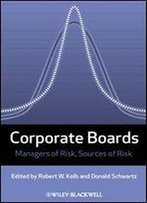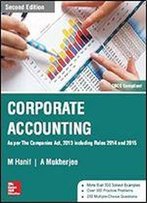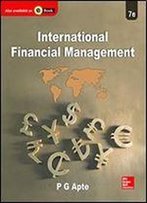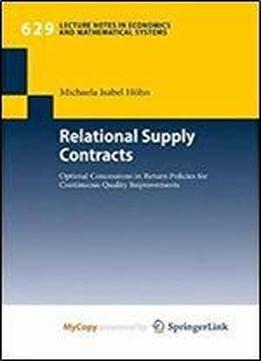
Relational Supply Contracts: Optimal Concessions In Return Policies For Continuous Quality Improvements (lecture Notes In Economics And Mathematical Systems)
by Michaela Isabel Hohn /
2009 / English / PDF
3.1 MB Download
Supply relations are often governed by so-called relational contracts. These are informal agreements sustained by the value of future cooperation. Although relational contracts persist in practice, research on these types of contract is only emerging in Operations and Supply Chain Management. This book studies a two-firm supply chain, where repeated transactions via well-established supply contracts and continued quality-improvement efforts are governed by a relational contract. We are able to characterize an optimal relational contract, i.e., to develop policies for supplier and buyer that structure investments in quality and flexibility in a way that no other self-enforcing contract generates higher expected joint surplus. A second goal is to compare the performance of different returns mechanisms in the context of relational contracting (quantity flexibility and buy-back contracts). Industry studies motivate the presented modelSupply relations are often governed by so-called relational contracts. These are informal agreements sustained by the value of future cooperation. Although relational contracts persist in practice, research on these types of contract is only emerging in Operations and Supply Chain Management. This book studies a two-firm supply chain, where repeated transactions via well-established supply contracts and continued quality-improvement efforts are governed by a relational contract. We are able to characterize an optimal relational contract, i.e., to develop policies for supplier and buyer that structure investments in quality and flexibility in a way that no other self-enforcing contract generates higher expected joint surplus. A second goal is to compare the performance of different returns mechanisms in the context of relational contracting (quantity flexibility and buy-back contracts). Industry studies motivate the presented model.

